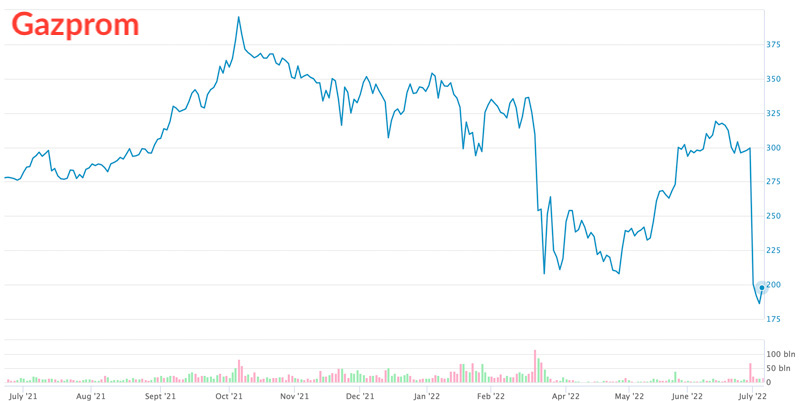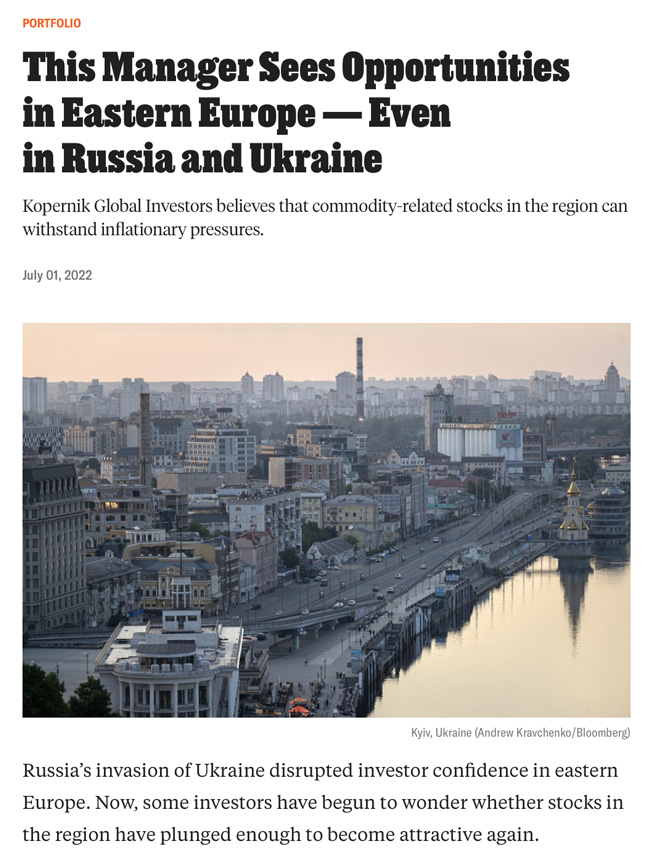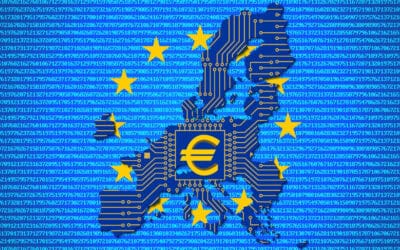For nearly six months, anyone who had used Western exchanges to invest in companies like Gazprom, Lukoil, or Sberbank has been unable to trade or even transfer their position. Even if you held the shares that are listed on the Moscow Stock Exchange instead of the ADRs and GDRs that are listed in London or New York, the Western sanctions have made it impossible to sell, buy or transfer these securities.
The bad news is, following the brief availability of a solution, we are now back to a point where no immediate solution is available.
Still, there is a plethora of activities going on in the background, some of which have not been widely reported by the investment media yet.
Here are the five key points you need to be aware of, as well as an outlook.
1. All roads are currently closed
When I last reported on Russian ADRs, I predicted that a solution was going to be found within weeks.
Indeed, several Western banks and brokerage firms had successfully prepared to offer their clients a conversion of DRs into shares, and the first conversions were already carried out. This was accomplished through an agreement between the Western bank and a non-sanctioned Western bank with a remaining presence in Russia (such as Raiffeisen Bank International or Citibank Moscow).
However, the game changed yet again.
For such a conversion to go ahead, the transactions need to be passed through Clearstream, the Luxembourg-based central clearing house. As a result of the EU's sixth sanctions package, which came into effect on 3 June 2022, Clearstream is no longer allowed to process any such conversion, as confirmed in the company's statement of 14 June 2022. The EU's sanctions now include Russia's National Settlement Depository ("NSD"), which is the clearing operation owned by the Moscow Stock Exchange.
Following the EU's most recent sanctions, everything has come to a complete standstill again. No one can buy, sell, transfer, or convert anything, full stop.
2. Some brokerage firms are better than others
Before the latest sanctions package, we saw which banks and brokerage firms really cared about their clients.
Interactive Brokers, for instance, had managed to convert Sberbank GDRs into ordinary shares. Supposed to be a trial initially, this approach was to be subsequently rolled out to other Russian DRs. Several Swiss full-service banks had also managed to resolve the issue for their clients.
In contrast to those, many (discount) brokers didn't make an effort or were outright non-cooperative, as reported by many Undervalued-Shares.com readers. In times like these, keeping an account with a firm that is either specialised in securities trading (like Interactive Brokers) or aimed at tailor-made services (like Swiss full-service banks) does pay off. Much as everyone is currently stuck, this should be a lesson to keep in mind for the upcoming era – more about this later.
3. Russia has been making an effort
Cynics will claim that Russia has lately been making more of an effort to protect the interests of Western DR holders than the politicians running the EU or the White House. There are also counter-arguments to this and the final result has yet to be delivered, but it is indeed notable that several potential solutions are being worked on not in the West but on the other side of the new Iron Curtain.
Gazprombank, Rosneftbank and potentially other Russian financial institutions have offered to open so-called "S" accounts for foreigners, using a a simplified procedure and without the need for travelling to Russia. Western investors would have been enabled to transfer their underlying stock to such an account, collect dividends, and sell shares against rubles. While they could not have converted the rubles to other currencies or repatriated the funds, or at least not easily, this would have represented a partial solution.
Additionally, the Moscow Stock Exchange was working on opening a new two-tier market where foreigners from both "friendly" and "unfriendly" nations could transact to some extent. This new market system was supposed to be unveiled on 27 June 2022.
Last but not least, the Russian Central Bank is known to be working with the Moscow Stock Exchange on making such a new market system possible.
As a result of the latest EU sanctions package, the "S" accounts have been rendered useless for now, and the Moscow Stock Exchange has postponed the launch of this new market because of pending technical issues that require more work.
The search for a solution seems to continue on the side of the Russians. After everything got stuck, Russia's Deputy Finance Minister, Alexey Moiseev, came forward with a statement on Interfax, claiming that the Russian government was working on a DR conversion procedure and a transfer to a Russian securities account that would NOT require the cooperation of ANY Western counterparts. As of now, no one that I have spoken to seems to have any clear idea how this could work. However, there is an excellent summary of the status quo of this initiative by Morgan Lewis, a US-based law firm that has taken on this entire issue on behalf of clients.
4. The Russian economy is stabilising
There's an increasing debate as to whether the collective West has miscalculated its sanctions strategy.
Five months after the start of the war in Ukraine, the Russian army is still operating and by some measures, the Russians seem to be winning militarily. The Russian ruble wasn't reduced to "rubble", as President Joe Biden famously predicted, but it is trading near a five-year high (bearing in mind that the currency exchange rate is also a technical reaction to the sanctions, of course). Russian energy companies keep selling energy abroad, and they are reaping additional income in the billions due to higher energy prices. The Russian oil production is now greater than before the start of hostilities.
While full-year forecasts for the Russian economy initially assumed a drop of 7.5-11%, this now looks more like 5-7%. The country has just loosened currency restrictions, and its residents can now transfer up to USD 1m per month to an account or another individual abroad. There are serious issues with the import of sanctioned technology, but countries such as Armenia are already offering themselves for a solution. In the meantime, Dubai is happy to "become the New Switzerland for traders of Russian commodities", as Bloomberg reported on 22 June 2022. Sanctions always provide a boon to middleman types.
The collective West in the form of the G7 nations has worked hard to isolate the Russian economy, but not everyone cares. The countries that have sanctioned Russia only represent 16% of the world's population, while countries that represent about 6bn – including Brazil, India, China, Indonesia, Iran, Turkey and Mexico – have no intention of imposing any sanctions. Together with Russia, this group of countries is now called the "New Group of Eight (G8)" by some commentators.
The old G7 represent:
- 10% of the world's population.
- 29% of global GDP.
- 4% of key commodities (oil, gas, iron ore, rare earths).
- 8% of world food production.
On the other hand, the "new G8" represent:
- 48% of the world's population.
- 36% of global GDP.
- 45% of key commodities (oil, gas, iron ore, rare earths).
- 58% of world food production.
These countries have taken note that the collective West disconnected a country from the global financial system. Do they ever fancy something similar to happen to them? Today, the "new G8" are in a completely different situation economically, technologically, and politically than ten or twenty years ago.
There is no denying that Western sanctions have had a significant negative effect on Russia, and especially on ordinary Russian citizens, as laid out in this 14 June 2022 article by The Times: "Russia's economy buckles as Western sanctions start to bite". However, this is not a situation where the collective West can exert quite the level of global influence than previously, as much of the rest of the world is now working overtime to reduce this influence even further.
Over the coming years, we are set to see a major reorganisation of the word economy around different blocks. As a result of all this, the Russian economy is in a better shape than many claim otherwise – despite the many problems it undoubtedly has.
5. Russian stocks are "cheap"
By conventional measures, Russian stocks are extraordinarily cheap.
In fact, price/earnings ratios of 2-4 and EV/EBITDA multiples of 1-2 are so cheap that many argue the worst-case scenario has already been priced in. Some Russian stocks trade with a p/e ratio of less than 1. You can buy Lukoil at a p/e of 2 with a 35% dividend yield. These figures include recent updates to earnings estimates.
The situation of these companies is fluid, and the current earnings estimates or dividend projections may yet need downward revisions. Gazprom, for example, just announced a cancellation of its dividend, a surprise negative development that made the share price tank in Moscow and might have further ramifications on the attractiveness of the stock even for domestic investors.

Also, cheap Russian valuations nowadays compete with much lower valuations of Western equities, due to the major fall of Western stock markets during the first half of 2021. Last but not least, the prices registered on the Moscow Stock Exchange are of little use for as long as one isn't able to actually trade over there.
Still, it's worth noting that many Russian stocks are trading at depressed valuations by many conventional standards. Just like Russia's economy, Russian stocks don't appear to be a write-off.
Grave miscalculations in the West
The treatment of Western DR holders following the Western sanctions is remarkable.
Preventing Western owners from converting their DRs into locally traded shares does not punish Putin in an effective way. What it does primarily is to punish anyone who has put some of their savings into Russian securities.
That'd be less of an issue if only tax-haven based scoundrels like yours truly were affected by this. However, it hits millions of Western savers who placed their faith in large financial institutions. E.g., US-based Pimco, one of the world's largest asset managers with USD 2.2tr in client assets, holds Russian sovereign bonds and other forms of exposure in its largest fund, the USD 124bn Pimco Income Fund. This hits the proverbial widows and orphans, and Pimco will be only one example of many since high-yielding Russian securities had been a fairly mainstream proposition during times of low interest rates in the West. The sanctions hitting DR holders offer no discernible benefit in terms of sanctioning Russia's government.
In the meantime, the West – and Western Europe in particular – are looking down the barrel of a major recession. Price controls and similar measures previously known from socialist economies that are currently being considered are unlikely to achieve anything other than more economic dislocations. The best cure for higher prices – if not even the ONLY cure – are higher prices, so that markets can direct more investment to areas where there is a shortage.
Stating some of these obvious points is still widely considered a taboo in the mainstream media, but the evidence is now of such an overwhelming nature that the first dissenters have started to appear.
As the 28 June 2022 Daily Telegraph article "The dismal truth is that Putin is winning the economic war" states:
"…. sanctions are not working in the way that had been hoped. Putin is progressively losing his Western markets, but at this stage it doesn't really matter because skyrocketing prices provide compensating rewards. At the same time, sanctions have greatly contributed to a politically destabilising cost of living squeeze across the Western world. Putin can reasonably claim to be winning the economic war, even if the physical one is in stalemate."
The Daily Telegraph is not alone. Edward Chancellor, a columnist at Refinitiv, which is owned by the London Stock Exchange, wrote an op-ed on 20 June 2022: "Could sanctions against Russia backfire?":
"It's hard to see how writing off hundreds of billions of dollars of foreign investments in Russia will persuade Putin to change his behaviour. Still, these remarkable events highlight another unwelcome feature of sanctions: they remove traditional legal protections afforded to private property, exposing investors to arbitrary state depredations."
Edward Chow, a Senior Fellow at the Center for Strategic and International Studies (CSIS) which is close to the Biden administration, admitted on 10 June 2022: "Are sanctions on Russia working? If the objective is to stop Russia...then the obvious answer is no."
Gloomy predictions about the Russian economy's future didn't come true, and much of this was entirely predictable. E.g., any hope that taking away the Russian oligarchs' yachts would make them influence or overthrow Putin have proven illusory – quite the opposite, some have become even more dependent on Putin as a result of the sanctions, and therefore more loyal. Many oligarchs and businessmen are now benefitting from buying out foreign partners for a pittance. There is a huge amount of management buyouts of all sized firms, and a new generation of Russian businessmen is turning into future oligarchs at the expense of Western investors. Many assumptions need to be looked at again with a more analytical mind rather than the goal of cheap political goalscoring.

The case for investing in Russia (source: Institutional Investor, 1 July 2022).
Where do we go from here?
The entire situation is unprecedented and has left even the most experienced experts scratching their heads. Despite my far-flung network and relatively privileged access to information sources, I have not found anyone with definitive answers.
However, the following seems to be true right now:
1. No loss of ownership
It's unlikely that anyone will simply "lose" their Russian DRs. The situation is simply stuck for now. Dividends that cannot be paid to a shareholder are generally kept by the company for a number of years, to be reclaimed later.
The sanctions regime is in place for the time being, and I don't expect any major changes before the US midterm elections in November 2022 at the earliest.
Until such time, it's worth to keep monitoring the situation occasionally (just don't spend too much time dwelling on this issue while you cannot do anything about it).
2. A lesson in asset protection
Potentially an even bigger issue to arise out of all this is the question what other risks there are in the future of "unfavourable" assets.
Russian-produced gold is already supposed to become banned. Whether such a ban could actually be policed in reality is another matter, but it goes to show how Western politicians and their allies among large corporations increasingly fantasize about banning other unfavourable assets. Such bans could next extend to fossil fuel stocks in general, bank accounts with deposits higher than a certain threshold, or business relationships with specific countries.
Are you confident that your savings and wealth couldn't be hit quite easily if you fell afoul of popular political opinion? It plays a large role where custody of your assets is held (see also my related articles "Capital controls – a return to the 1970s?" and "Tax havens are toast").
3. The need for specialised information sources
I am amazed how the mainstream media have largely ignored the issues of Western holders of Russian DRs. Then again, I am not surprised.
If this issue affects you or if you'd like to follow it for any reason (e.g., to see if at some point you can profit from it), you need to follow specialised information sources – such as Morgan Lewis, the go-to source for reliable legal analysis of this entire matter. You can contact Grigory Marinichev on [email protected].
German speakers can also follow the website of Schutzgemeinschaft der Kapitalanleger (SdK), a shareholders' rights organisation that has taken on this issue. You can read more about it in their recent newsletter issue.
Did you find this article useful and enjoyable? If you want to read my next articles right when they come out, please sign up to my email list.
Share this post:







